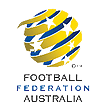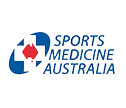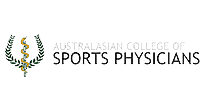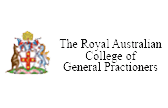Rotator Cuff Tear
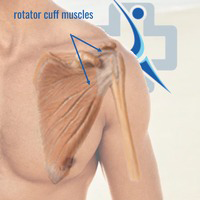
What is the Rotator Cuff?
The rotator cuff is a term given to the four muscles that travel from the shoulder blade to the arm forming a ‘cuff’ around the shoulder joint. The rotator cuff is responsible for producing rotational and stabilising movements of the shoulder. Bigger muscles around the should produce powerful movements but often the rotator cuff muscles are called on to stabilise the shoulder under those loads.
What is a Rotator Cuff Tear?
A tear to one or more of the rotator cuff muscles can occur either due to a sudden traumatic injury or due to gradual degeneration through irritation or overuse.
What are the symptoms of a rotator cuff tear?
Symptoms can be quite variable but usually there is pain that is most aggravated by a specific angle of shoulder movement that results in a sudden or sharp catching pain. The exact movement that aggravates the pain depends on the tendon that is involved. Supraspinatus (the most commonly injured rotator cuff muscle) might produce pain when the arm moves out to the side and overhead whereas Subscapularis is more likely to hurt if stretched in external rotation or contracted against resistance in internal rotation of the shoulder.
How is a rotator cuff tear diagnosed?
An expert Sport and Exercise Physician can establish the likelihood of a rotator cuff tear based on clinical examination movements and tests. A scan is only required if the result is likely to affect how the tear needs to be managed and, in general, this means your doctor will only order a scan if they think there is a chance there may be a high-grade tear with retraction that might need surgical intervention. Another reason your doctor might request a scan is if they suspect there might be another factor contributing to or aggravating the tear such as a bone spur.
What is the treatment for a rotator cuff tear?
Treatment is always individualised depending on the type, location and severity of the tear as well as the life situation and demands of the individual patient. Treatment options can include load management and rehabilitation, anti-inflammatories and corticosteroid injections and even surgery.
Does cortisone help for a rotator cuff tear?
Cortisone is just a strong anti-inflammatory so it clearly wont cause a torn structure to instantly repair. For more on what cortisone does and doesn’t do click here. Sometimes chronic inflammation in the small space available for the rotator cuff tendons can lead to further irritation and tearing and it is in these situations that cortisone can be an effective part of the overall strategy in removing aggravating factors to allow the tendon to heal. Cortisone can also provide some effective short term relief in situations where surgery is planned but needs to be postponed due to life circumstances.
Is surgery required for rotator cuff tears?
Surgery is reserved for the most severe rotator cuff tears that are high grade and result in tendon retraction. It is most effective for fresh/recent tears due to acute trauma and can prevent long term complications such as premature degeneration of the shoulder joint.


